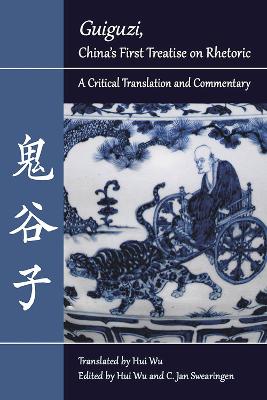Landmarks in Rhetoric and Public Address
1 total work
Guiguzi"", China's First Treatise on Rhetoric
by Hui Wu and C. Jan Swearingen
Published 19 August 2016
At around the same time that Aristotle was active in ancient Greece, many students in China, including Sun Tzu, who would later write The Art of War, were learning the techniques of persuasion from Guiguzi, "the Master of the Ghost Valley." This pre-Qin dynasty recluse produced what is considered the earliest Chinese treatise devoted entirely to the art of persuasion. Called Guiguzi after its author, the text provides an indigenous rhetorical theory and key persuasive strategies, some of which are still used by those involved in decision making and negotiations in China today. In "Guiguzi," China's First Treatise on Rhetoric, Hui Wu and C. Jan Swearingen present a new critical translation of this foundational work, which has great historical significance for the study of Chinese rhetoric and communication and yet is little known to Western readers.
